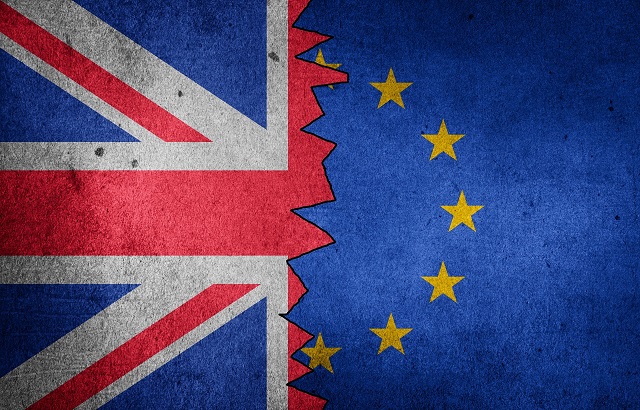The UK left the European Union on Friday 31 January, but those hoping it meant the end of Brexit will be sorely disappointed.
There are still trade deals to thrash out, which will have to be done in record time, especially as UK prime minister Boris Johnson wants everything tied up within a year.
If this does not happen at the end of the transition, then the threat of a no-deal Brexit is back on the table.
Daunting task
“The official signing, music and waving goodbye is only the beginning,” said Marcus Brookes, chief investment officer at Schroders Personal Wealth.
“The UK is now entering a transition period during which it has to extricate itself from legislation that has built up over more than 40 years. It must replace all of it.
“This will require a huge swath of head-to-head wrangling followed by the writing and multiple re-writing of numerous laws and regulations.
“The UK is facing a much more substantial and daunting task of agreeing trade terms with all remaining 27 member states of the EU; as well as with the 40 further countries, with which the UK has dealt with through the EU.”
Brookes added that Johnson’s plan was “ambitious and puts considerable pressure on all involved”.
Confidence
Common phrases since the referendum in June 2016 have been ‘in spite of’ or ‘despite’ Brexit, especially when discussing the economy, but some in the industry are not seeing the “doom and gloom” any longer.
Ryan Tholet, head of Investec Private Bank, said: “To quote a famous aside, news of the death of the UK economy has been greatly exaggerated, in our experience.
“Evidence of this is shown in significantly more activity from high net worth clients than in recent years, in spite of the apparent pervading doom and gloom.
“So, now that Brexit is ‘almost’ done, I think our clients will likely be pleased the negative conversation and uncertainty is coming to an end and they can look forward to the greater unfolding opportunities that lie ahead; as the UK re-establishes itself in a post-Brexit environment.”
Robert MacIntyre, head of wealth structuring solutions at Lombard International Assurance, said: “Many firms and their clients are more confident about the prospect of life in the UK than they were this time last year.
“Assurance that internationally recognised wealth structuring solutions will be left unchanged, will be crucial if this confidence is to remain.”
Changes
So, what changes does the advice industry expect?
Philip Smeaton, chief investment officer of Sanlam Private Wealth UK, said the firm does not believe there will be “any immediate changes to pension and investment legislation”.
“At the end of this year, EU-influenced regulations, under which UK pension and investment schemes operate, will need to be adopted or repealed,” he said.
“We can expect them to find their way back onto parliament’s agenda next year.”
Elsewhere, another big talking point is passporting rights, which gives firms the ability to offer services to clients across the EU.
MacIntyre added: “Front of mind for all wealth managers will be the issue of passporting rights. We have already seen UK-based firms with EU clients move some of their operations to the continent, and vice versa.
“Our HNW clients are increasingly internationally mobile and they will expect their cross-border wealth solutions to be unchanged, regardless of regulatory change.
“Firms will need to invest significant time and resource to ensure that the impact of Brexit on their client services is muted.”
Jason Porter, director of specialist expat financial advisory firm Blevins Franks, said to International Adviser: “Regardless of all the leaders saying what they want around maintaining things like the European Health Insurance Card and state pension triple lock, if reciprocated, just commit absolutely to it, to give people security in their planning for a move.”








